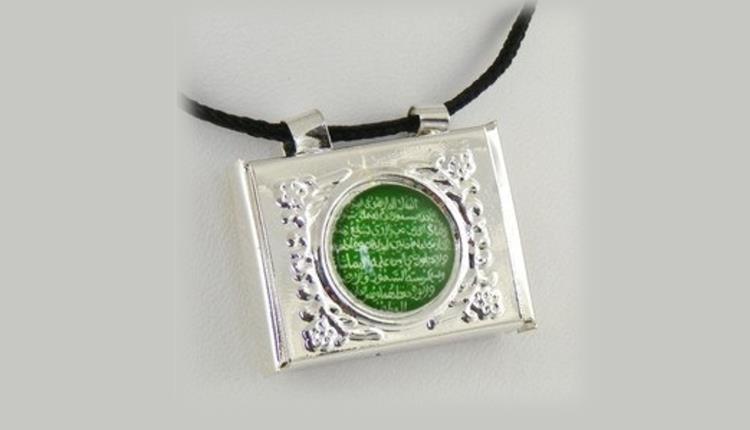On usage of Taweez – Shirk or Bidat?
I am doing some reseach about: “Whether writing the Qura’anic verses or the short description, ‘Taweez’ and hanging in the neck or other parts of the body”. Is it allowed? One school of thought, it is allowed unless any thing is shirk in it. Second opinion, total Haram, and shirk, Please direct your opinion, shukran Other also feel free to interject as we all learn by discussing and searching as no one of us is complete and we all are the students of knowledge inshaalah.
Answer
This is my ordinary (and confused) understanding on the subject:
I think that the use of Taweez per se for one’s benefit can’t be categorized as shirk. In shirk, a person is asking someone other than Allah Almighty for help. In case of Taweez, in most cases the person getting into it is considering this method to be effective in solving some of his problems through the grace of the Almighty. In case the person using it believes that it is through the power of someone else that the Taweez is effective then it’s difficult to understand as to why he is using the verses of the Quran at all. (Of course, I am assuming that the Taweez is using some Quranic verse or verses or a part thereof.) As for bad intentions, a person can do shirk even while praying the way Muslims pray, if he/she is directing prayers towards someone other than the Almighty.
Using Taweez is more likely to be categorized as bid’at, which is a very serious religious crime, although a shade less in severity compared to shirk. My understanding about bid’at is that it is an apparently religious act which is done in the name of religion but doesn’t have any support from the practice of statements of the prophet, alaihissalaam. Thus, if a person starts praying a sixth prayer during the day, declaring it to be another act of virtue, it will be a bid’at, since it is an attempt to add to the religion of Islam, where as Islam was completed by the prophet. Therefore all the apparently religious activities that are practised in the sub-continent after a person’s death are bid’at, since all of them involve either recitation of Quran or some other way of invoking the Almighty’s attention but none of those (except washing the dead body, Janaza prayers and prayers in the graveyard) were performed by the prophet. On the other hand, the long list of the functions of marriage are not bid’at (even though they could be and ought to be criticized for other reasons) because these functions are not religious in nature.
Now, let’s come to the point. Taweez, to me seems to be close to bid’at, although I don’t want to say that it is definitely one. The reason for my ambivalence is that I am not particularly sure whether in using Taweez a person is doing something that could be described as a religious activity. Any activity that involves Quran generally speaking does seem to me religious in its nature. However, there could be exceptions.
I would therefore fall short of calling it a bid’at but would ask good Muslims to stay away from getting into it. The Almighty has full ability to come to your rescue even without Taweez. The prophet, alaihissalaam, has taught us many supplications that can be used to get the Almighty’s help. Recitation of the Quran and prayers are the most effective ways of seeking the Almighty’s help for all purposes. Things like Taweez have a tendency to keep you away from employing the more genuine religious ways of seeking help from Allah Almighty. Moreover, they tend to make a person superstitious. That in itself is a very serious spiritual ailment. There are therefore enough reasons for one to stay away from using Taweez.
I am not denying the fact that Taweez can be effective. I know that they actually are sometimes effective. However, while deciding whether a certain practice is religiously acceptable or not its effectiveness from the worldly point of view is no criterion. In fact worldly effectiveness can sometimes become a fitnah (trial).

